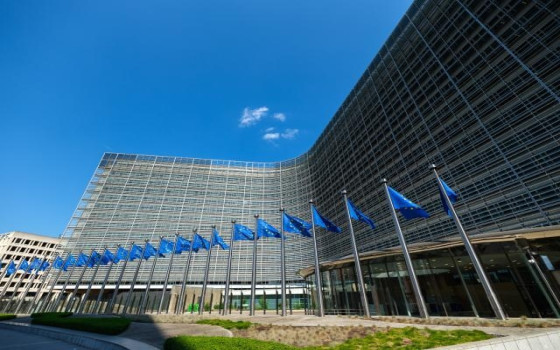
The European Union fails to decide to suspend the association agreement with Israel: The goal is not to punish, but to genuinely improve the situation in Gaza.

- Europe and Arabs
- Wednesday , 16 July 2025 12:21 PM GMT
Brussels: Europe and the Arabs
At the conclusion of a meeting of EU foreign ministers in Brussels, a decision to freeze and suspend the partnership agreement with Israel was unsuccessful due to human rights violations against Palestinians in the occupied territories. Kaya Kallas, the European Union's foreign policy coordinator, said on the situation in the Middle East, "The Foreign Affairs Council exchanged views on the situation in the Middle East, starting with a discussion of the humanitarian situation in Gaza." She added, according to a statement issued Tuesday evening, "Last week, Israel and the European Union reached an understanding on expanding humanitarian aid to Gaza. So we are seeing positive signs. We are seeing more trucks and supplies arriving in Gaza, we are seeing more entry points open, and we are also seeing the repair of electricity lines. But Israel needs to take further concrete steps to improve the humanitarian situation on the ground. The European Union will closely monitor Israel's implementation of this joint understanding and commitments and will update compliance every two weeks." Following the Foreign Affairs Council's discussions on 23 June on the review of Israel's compliance with Article 2 of the EU-Israel Association Agreement, the Council exchanged views on a list of possible follow-up actions.
At the European Council's request, I also presented the ministers with a list of various actions that could be taken in relation to the review conducted in June. We held a discussion on this topic, and these are options for Member States to take. We will keep these options on the table and remain ready to act if Israel fails to fulfill its commitments. The aim is not to punish Israel, but to genuinely improve the situation in Gaza. According to the statement, Kaya Kallas, High Representative for Foreign Affairs and Security Policy and President of the Foreign Affairs Council,
The Council also reviewed the latest developments regarding Iran and reiterated its position that Iran should not acquire any nuclear weapons and that diplomacy is the best long-term approach to achieving this goal. Mediterranean 2025: Charter and Reform of the Union for the Mediterranean
The Council held a debate on "Mediterranean 2025: Charter and Reform of the Union for the Mediterranean," focusing on the new Charter for the Mediterranean, which aims to give new impetus to the EU's engagement in the Mediterranean region, and the reform process of the Union for the Mediterranean, ahead of the 30th anniversary of the Barcelona Declaration.
Other Discussions and Decisions
Within the framework of current affairs, the High Representative addressed relations between the European Union and the Community of Latin American and Caribbean States (CELAC), Somalia, Moldova, China, Japan, and Libya.












No Comments Found